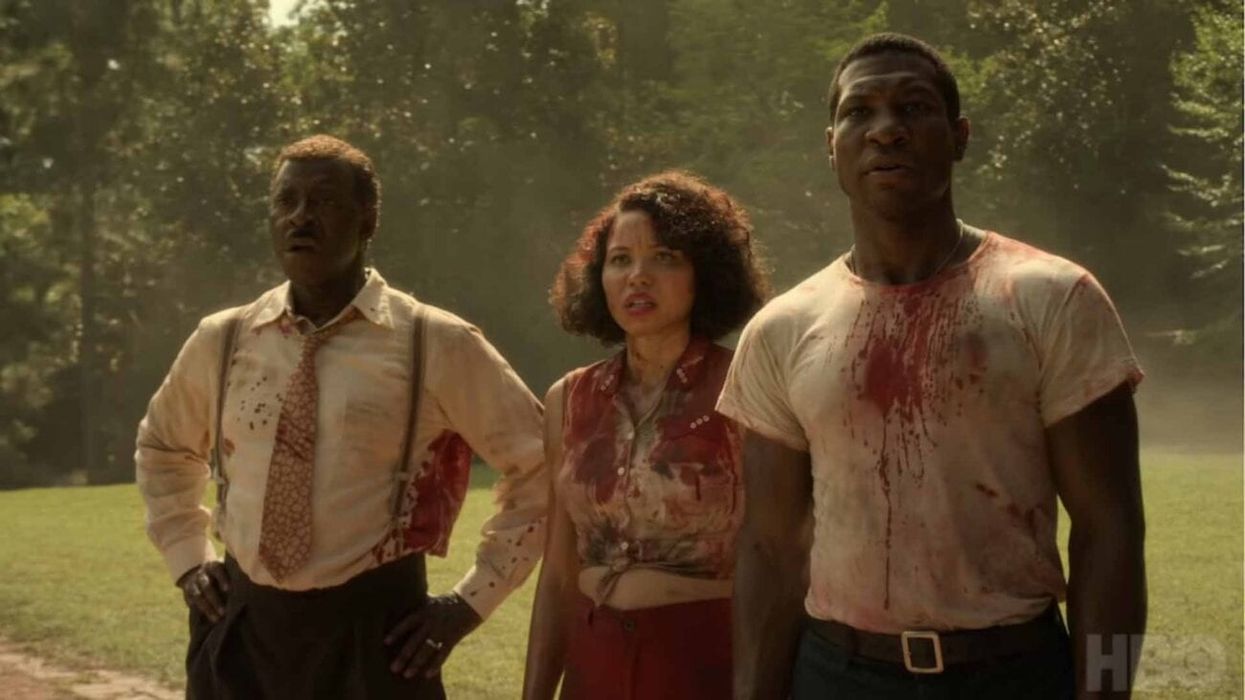How Genre-Bending Reveals the True Monsters of 'Lovecraft Country'
Horror, noir, and southern gothic all at once? Lovecraft Country brings it all together to show us the monsters that lurk within racism.

We'd had cinematic storytelling for well over 100 years, and humans, in general, have been telling stories since they worked out how to speak. Over the course of the millenia, these stories have been categorized into specific genres, complete with conventions and tropes so the people listening know what's in store.
But when stories were told and subsequently written down, many of the stories were not inclusive or indicative of the populations. They were a sort of history, written by the victors, and told through one point of view.
As America begins to confront its racist past, we're seeing a lot more of the genres that were exclusively used for white stories become vehicles about other people's experiences.
That has made for exciting cinema and television. Movies like Get Out and shows like Watchmen have not only educated white viewers (like myself) but provided exciting and important stories that bring new life to old twists and turns.
Enter Lovecraft Country, a show that accesses noir, horror, and gothic storytelling to rejuvenate the genre. The story is about a young Black Korean War veteran named Atticus “Tic” Freeman (Jonathan Majors). He and his Uncle George (Courtney B. Vance) and childhood friend Letitia (Jurnee Smollett) look for his father who has gone missing. The story takes them from the North into the South as they encounter monstrous racists as well as literal Lovecraftian monsters.
So how does HBO's Lovecraft Country seamlessly blend horror and noir into a southern gothic tale?
How Lovecraft Country Blends Genres Seamlessly
In one of the earliest scenes, we meet Tic as he's walking into town. When questioned about what he was reading, he explains why he loves the sci-fi novel Princess of Mars even though its protagonist is a Confederate soldier. “Stories are like people,” says Tic, “Loving them doesn’t mean they’re perfect. You just try to cherish them, overlook their flaws.”
In that sentiment, we understand why Lovecraft is included in this story. His legacy is that of great stories that make us question ourselves. But you cannot deny that his legacy is also a profoundly racist one. From his personal letters that expel all kinds of bigotry to many of these horror stories.
As the Los Angeles Times says, "It has brought renewed attention to the legacy of H.P. Lovecraft, one of the most influential genre writers of the 20th century — as well as a virulent racist, white supremacist and anti-Semite whose dread-soaked writing is animated by fear of the Other."
Knowing all this, it's interesting to see how the show builds on those ideas and uses the genre to incorporate the real horror of lynching and racial prejudice of the time. The show is set in the racially segregated Jim Crow era of the 1950s, so America’s racist history at the center of the narrative.
As the show's star Jonathan Majors told Variety, “Genre takes all those ideas and puts them all under the same filter, right? [It] allows more people to take it in and then you take topics that feel so binary, as systemic racism, and you put it through that filter and it allows everybody to see it from their point of view.”

The time period provides the external horror template, but the noir comes within the missing person case they are trying to solve. In each scene, the series seems to shift shape, in a great way, from collecting the clues to the worry that a black man disappearing in the South usually means he's been murdered.
Showrunner and executive producer Misha Green says, “I think the genre, at its best, is when there’s a metaphor. It’s a metaphor on top of the thing, the real thing you’re exploring. So, even in episode one, this idea of sundown towns and you can’t be Black after dark… That is the real-life horror. What is our metaphor on top of that? Oh, vampires...And the monsters show up and you’re almost relieved because the human monsters are even worse than the real, actual monsters are.”
When it comes to worldbuilding, this show, which is based on the novel by Matt Ruff, does a great job of making outsiders understand what people in general are up against. When it begins to add other genre elements, it does it through the context of the current climate.
So when we have a car chase out of a sundown town, we know that sundown is dangerous on two genre fronts: in the thriller noir, because of racists, and in horror because of monsters. In this show's arena, they are one and the same.
It will be interesting to see how the other episodes play out these facts and what the season has in store.
But for now, take a peek at what's coming in the coming weeks on the show...
What's Next? Write Your TV Drama Pilot!
Hundreds of pilots sell to networks and streaming services every year. What's stopping you from selling your idea? Want to learn how to write a TV pilot? You've come to the right place.











